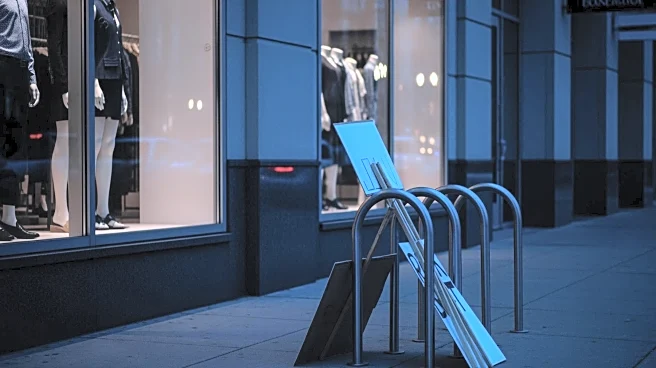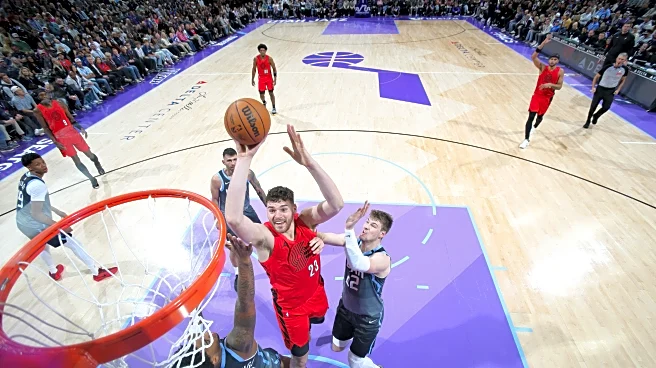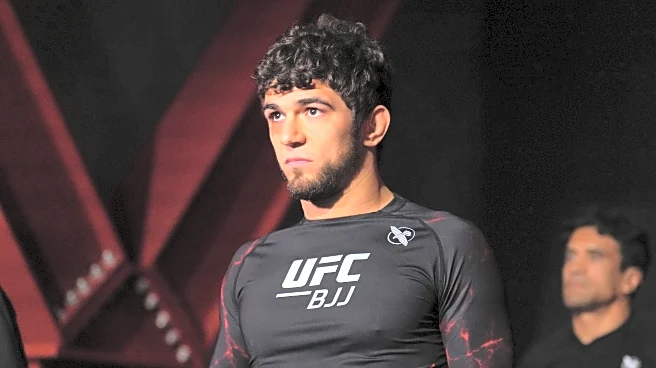What's Happening?
Johnson Wen, a 26-year-old Australian, was sentenced to nine days in jail by a Singapore court for being a public nuisance after he accosted singer Ariana Grande at the Asian premiere of 'Wicked: For Good.' Wen jumped a barricade at Universal Studios
Singapore and approached Grande, putting his arms around her neck and shoulders. He was quickly separated from Grande by her co-star Cynthia Erivo and security personnel. Wen, who was in Singapore on a tourist visa, had previously disrupted several celebrity and sporting events, including the 2024 Olympics in Paris. The court added two days to the prosecution's requested sentence, citing Wen's history of similar behavior.
Why It's Important?
The swift legal action taken by Singapore authorities underscores the country's strict approach to public disturbances and the protection of individuals at public events. This incident highlights the challenges celebrities face regarding personal security and the potential risks posed by individuals seeking attention. The sentencing serves as a deterrent to similar behavior, emphasizing the importance of maintaining public order and safety at high-profile events. It also raises awareness about the need for effective security measures to protect public figures from unwanted interactions.
What's Next?
Wen's sentencing may prompt event organizers and security teams to reassess their protocols to prevent similar incidents in the future. The case could lead to increased scrutiny of individuals with a history of disruptive behavior at public events, potentially influencing visa policies and security measures in Singapore and other countries. Additionally, the incident may encourage celebrities and their teams to advocate for stronger security arrangements during international appearances.
Beyond the Headlines
The incident raises questions about the motivations behind such disruptive actions, often linked to the pursuit of online fame or notoriety. It also highlights the ethical considerations of public behavior and the impact of social media on individuals seeking attention. The case may contribute to broader discussions on the balance between public access to celebrities and the need for privacy and security.

















